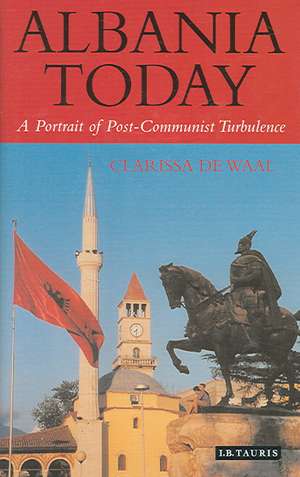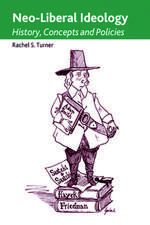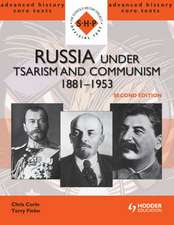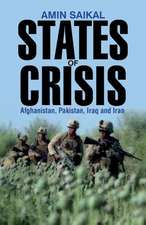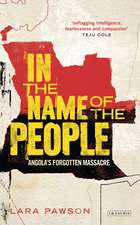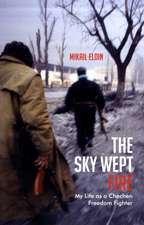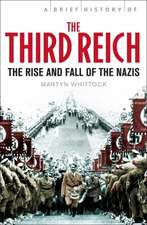Albania Today: A Portrait of Post-communist Turbulence
Autor Clarissa de Waalen Limba Engleză Hardback – 21 iun 2005
Preț: 773.30 lei
Preț vechi: 1112.63 lei
-30% Nou
Puncte Express: 1160
Preț estimativ în valută:
147.97€ • 154.91$ • 122.44£
147.97€ • 154.91$ • 122.44£
Carte tipărită la comandă
Livrare economică 05-19 aprilie
Preluare comenzi: 021 569.72.76
Specificații
ISBN-13: 9781850438595
ISBN-10: 1850438595
Pagini: 280
Ilustrații: 8pp bw plates
Dimensiuni: 138 x 216 x 27 mm
Greutate: 0.49 kg
Ediția:New.
Editura: Bloomsbury Publishing
Colecția I.B.Tauris
Locul publicării:London, United Kingdom
ISBN-10: 1850438595
Pagini: 280
Ilustrații: 8pp bw plates
Dimensiuni: 138 x 216 x 27 mm
Greutate: 0.49 kg
Ediția:New.
Editura: Bloomsbury Publishing
Colecția I.B.Tauris
Locul publicării:London, United Kingdom
Notă biografică
Clarissa de Waal teaches Social Anthropology at the University of Cambridge. She is a Fellow of Newnham College.
Cuprins
MapsList of illustrations Acknowledgements Foreword to the revised editionChapter 1. IntroductionChapter 2. First Impressions: DropullChapter 3. Tirana, 1992 Chapter 4. Looking for a fieldwork baseChapter 5. Mirdita and its historyChapter 6. The Kanun in the 1990s Chapter 7. Family life and poverty in FanChapter 8. OroshChapter 9. The bajraktar and the heroine of the people Chapter 10. DevelopmentsChapter 11. Life and work in BulsharChapter 12. Rrëshen Economic survival & religion Chapter 13. Rrëshen Life & death & the breakdown of law & order Chapter 14. Descent to the plainChapter 15. New conclusion 2010Appendices 1. Sketches from a twelve year old's notebook2. Extended quotations from the Kanun of Lek Dukagjin BibliographyIndex
